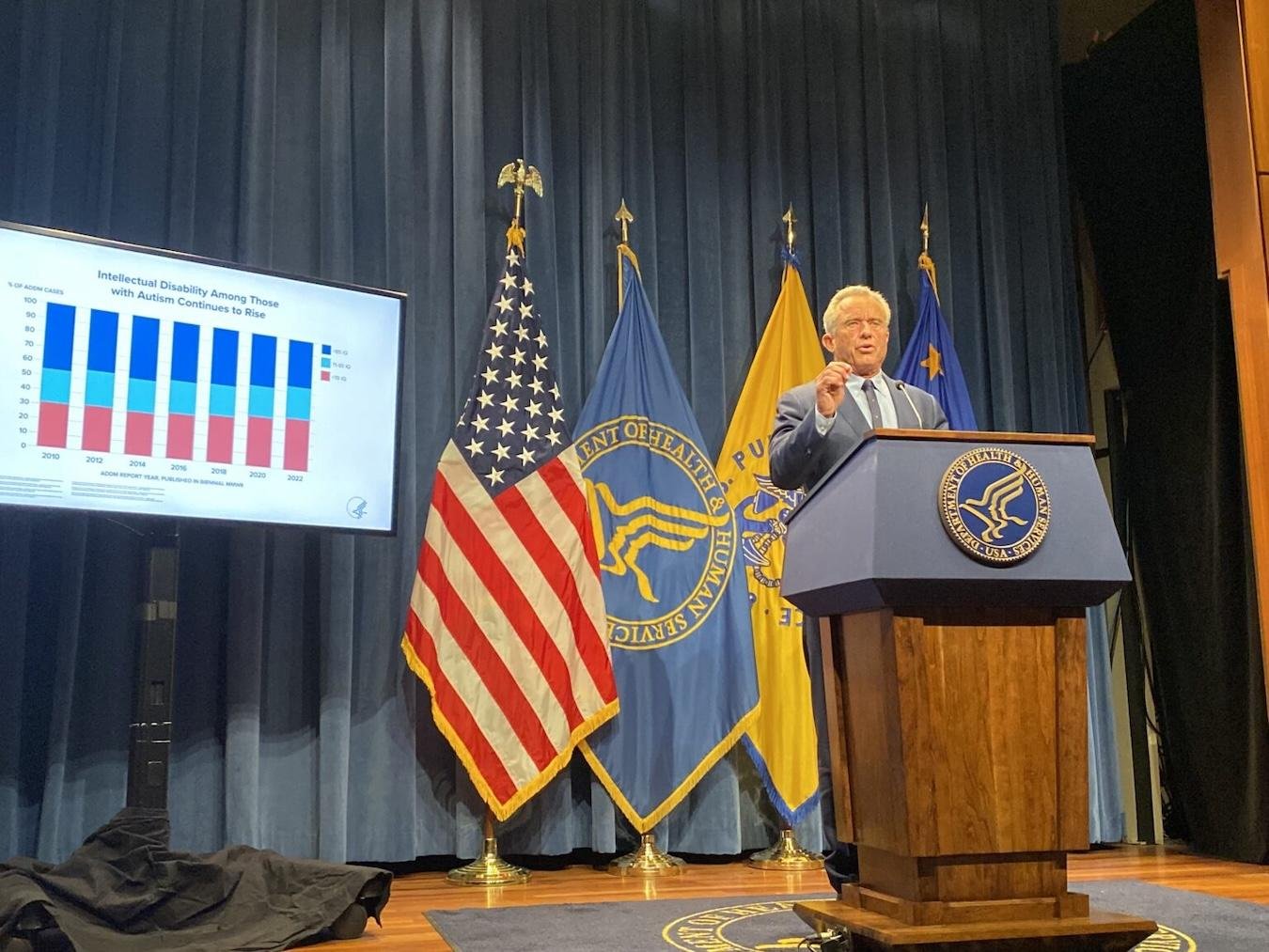Business
RFK Jr. Claims Autism Is ‘Preventable’ in Shocking Rejection of Scientific Consensus

U.S. Health and Human Services Secretary Robert F. Kennedy Jr. announced a new research initiative focusing on potential environmental causes of autism. During a press conference on Wednesday, Kennedy emphasized that autism is a preventable condition and criticized genetic research as a “dead end.” He stated that the Department of Health and Human Services (HHS) will allocate funds for studies to identify environmental toxins that could be linked to autism.
“This has not been done before,” Kennedy remarked, promising a thorough approach to the investigation. The research will consider various factors such as mold, food additives, pesticides, and parental health issues like diabetes and obesity. He expressed confidence in providing preliminary answers by September, although he also noted that this will be an ongoing process.
While Kennedy shifted focus towards environmental factors, autism experts expressed skepticism regarding his claims. They argue that pinpointing a definitive cause of autism within his proposed timeframe is implausible. Catherine Lord, a psychiatry professor at UCLA, described the timeline as “utterly ridiculous,” emphasizing the complexities of studying environmental impacts on health without direct exposure to toxins.
Lord noted that genetics likely play a significant role in autism, which could complicate Kennedy’s proposed shift in research funding. Eric Fombonne, a psychiatry professor at Oregon Health and Sciences University, criticized Kennedy’s outlook, stating that comprehensively understanding autism’s etiology would take years. He warned that redirecting funds from genetic to environmental research might hinder progress in genetic studies that have been fruitful over the past few decades.
Fombonne further pointed out that there is currently no substantial evidence linking specific environmental pollutants to increased autism rates. He highlighted that previous studies haven’t shown significant clusters of cases in polluted areas, indicating a challenging path ahead for environmental research.
The scientific community remains divided on this issue as Kennedy continues to advocate for new environmental studies. The coming months may shed light on whether his approach gains traction or meets resistance from established autism research frameworks.


















